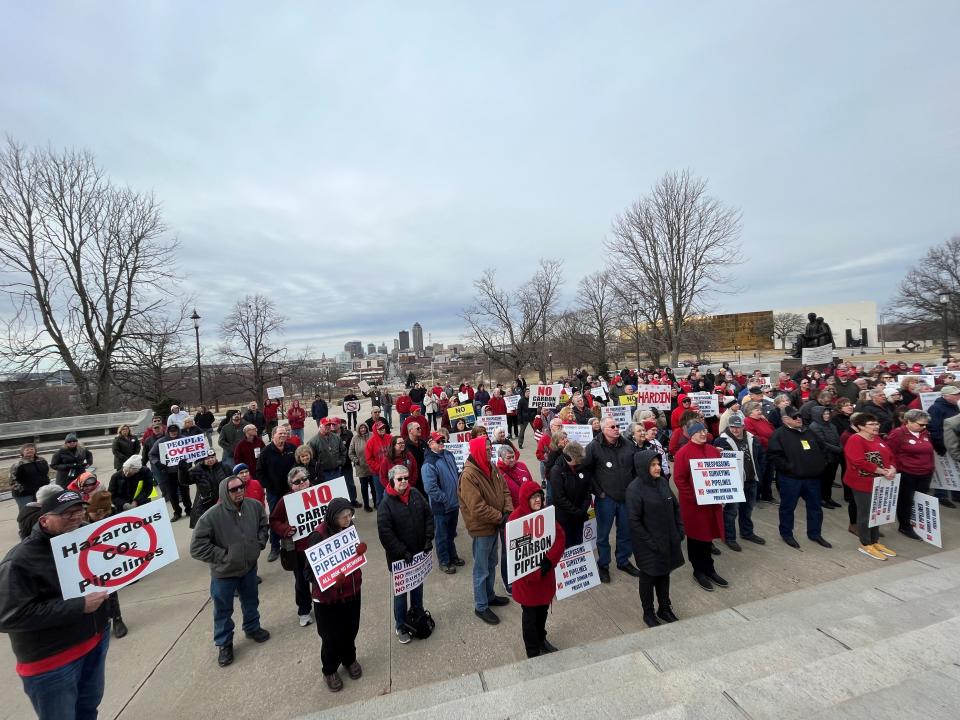Iowa farmers face $1 billion-a-year hit to income without carbon pipelines, report says
Iowa farmers could lose about $1 billion in annual farm income if carbon capture pipelines aren't built to ensure the state's largely corn-based ethanol will remain viable as the country seeks to slow down climate change, says the second part of an industry-backed report.
Iowa is the nation's largest producer of both corn and ethanol. A 75% estimated loss in ethanol production if the pipelines aren't built would force the state's growers to ship about 44% of their crop outside of the state, primarily to neighboring ethanol-producing states Minnesota, Nebraska and South Dakota, says the report.
Released Monday, the report by Decision Innovation Solutions, an agriculture-focused economic analysis firm, was funded by the Iowa Renewable Fuels Association.
Iowa farmers currently export 6% of the state's corn crop to either neighboring states and other countries, according to the report, while the ethanol plants, along with Iowa cattle, chicken and other livestock producers, use roughly 93%.

The association released the second report as lawmakers are expected to consider legislation that would make it harder for the three companies proposing pipelines, Summit Carbon Solutions, Navigator CO2 Solutions and Wolf Carbon Solutions, to them in Iowa. Last month, the association released the report's first part, calculating that, without the proposed pipelines, the Iowa ethanol industry would lose about three-fourths of its production, worth about $10.3 billion annually, to neighboring states in the next five to 10 years.
The group said the lost revenue would ripple through Iowa's economy. Last year, Iowa farmers grew 2.5 billion bushels of corn.
Opponents of the pipelines say the Iowa Renewable Fuels Association is trying to scare people into supporting the pipeline projects, which would liquefy carbon dioxide emissions from ethanol and other industrial agriculture plants and pipe them to either Illinois or North Dakota, where they would be sequestered deep underground.
"It's fear-mongering," said Jessica Mazour, the Sierra Club of Iowa's conservation program coordinator.
She said the groups don't represent farmers along the route, many of whom are opposed to the project.
"Farmers can see right through" the report, she said. "It's the ethanol and pipeline companies that stand to benefit from the projects, not farmers."
The report says the cost of transporting corn outside the state would shave an average of 35 cents off the revenue from each bushel. The costs, called the basis, would vary across the state. For example, farmers in southwest farmers would lose an estimated 10 cents a bushel, while central Iowa farmers could lose up to 75 cents, the report says.
Corn averaged $6.45 a bushel statewide on Friday.
Overall, the cost to ship Iowa corn would climb nearly 80% to about $800 million a year due to decreased in-state demand, the report says.

 Yahoo Autos
Yahoo Autos 